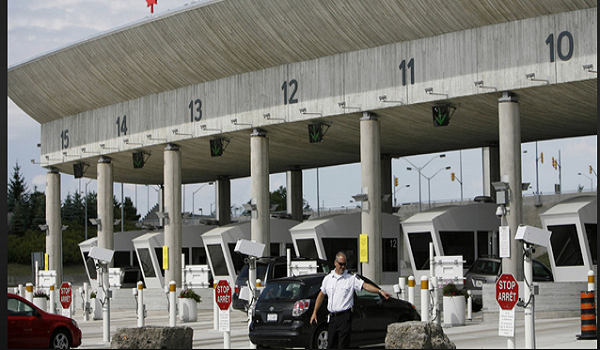UN finding shows Canada’s temporary foreign worker program a ‘breeding ground” for modern slavery
A final report by UN investigator Tomoya Obokata concludes that Canada’s temporary foreign worker program is a breeding ground for contemporary forms of slavery.
Prof. Obokata is the United Nations’ special rapporteur on contemporary forms of slavery and a professor of international human-rights law at the University of York in Britain.
The recently released final report cements Prof. Obokata’s initial impressions, which he first expressed last year after visiting Ottawa, Moncton, Montreal, Toronto and Vancouver on a fact-finding tour.
“The special rapporteur retains the view that the temporary foreign worker program serves as a breeding ground for contemporary forms of slavery, as it institutionalizes asymmetries of power that favour employers and prevent workers from exercising their rights,” states the final report, which is dated July 22 and was recently posted online.
Federal programs that allow Canadian companies to bring in foreign labour on a temporary basis have existed in various forms for decades, with numerous waves of reforms to the rules over that time. Historically, it has primarily been used in the agricultural sector to cover seasonal spikes in labour demand.
The program is now facing renewed scrutiny over the steep rise in a separate stream of the program focused on low-wage workers, which employers are using to fill positions such as fast-food counter attendants.
Employment Minister Randy Boissonnault met with business leaders last week and announced federal plans to curtail the use of the low-wage program, including by applying “stricter and more rigorous oversight.” He also said Ottawa is considering rule changes that would prevent employers in certain areas and industries from using the program.
The program is meant to be an option of last resort when an employer is not able to find local workers, but experts question why the program has grown during a period of rising unemployment.
During the first quarter of 2024, employers received government approval to hire 28,730 people through the low-wage stream of the temporary foreign worker program, an increase of 25 per cent from a year earlier, according to figures from Employment and Social Development Canada. It was the highest quarterly number for such approvals in government records that date to 2016.
The low-wage stream was allowed to grow after the peak of the COVID-19 pandemic in response to calls from business groups that said such measures were urgently needed to help business owners struggling with acute labour shortages.
The UN report’s section on the program highlights a long-standing criticism, which is that a worker’s migration status depends on an employer-specific, closed work permit.
“Given the structural inequities between temporary foreign workers and employers and their insufficient access to justice and remedies, workers experience a wide range of abuses,” the report states.
“The special rapporteur received reports of underpayment and wage theft, physical, emotional and verbal abuse, excessive work hours, limited breaks, extracontractual work, uncompensated managerial duties, lack of personal protective equipment, including in hazardous conditions, confiscation of documents and arbitrary reductions of working hours. Women reported sexual harassment, exploitation and abuse.”
The report said that while the program does allow workers to apply for an open work permit, it said this is unrealistic for many given the rules involved.
The Migrant Workers Alliance for Change, an advocacy group, issued a statement Monday welcoming the UN report, saying the program should be changed to incorporate a clear pathway to permanent residence.
Responsibility for the program is shared by three federal departments – Employment and Social Development Canada; Immigration, Refugees and Citizenship Canada; and the Canada Border Services Agency.
Mathis Denis, press secretary to Mr. Boissonnault, said in a statement Monday that the government recently made changes that reduce access to the program and the minister is considering additional restrictions, including fee increases to pay for increased enforcement and potential new eligibility rules that will take into account an employer’s history of layoffs.
“The government of Canada remains committed to working with partners and stakeholders to continuously find ways to strengthen the TFWP’s integrity to enhance temporary foreign worker protections,” he said.
Conservative Leader Pierre Poilievre criticized the Liberal government’s management of the program during a news conference in Hamilton last Friday.
He said that the program’s growth has coincided with an expansion of permits for international students, who he described as effectively temporary foreign workers who arrived under the wrong stream.
“Our temporary foreign worker program should only be available to fill jobs that employers have proven beyond a doubt cannot be filled by Canadians. It should never be used to bring in low-wage workers from poor countries to take jobs away from or suppress the wages of Canadian workers,” he said.
“I challenge Canadian business to hire Canadian workers first, and I challenge the government to end the chaos in the temporary foreign worker program.”
This article was first reported by The Globe and Mail












